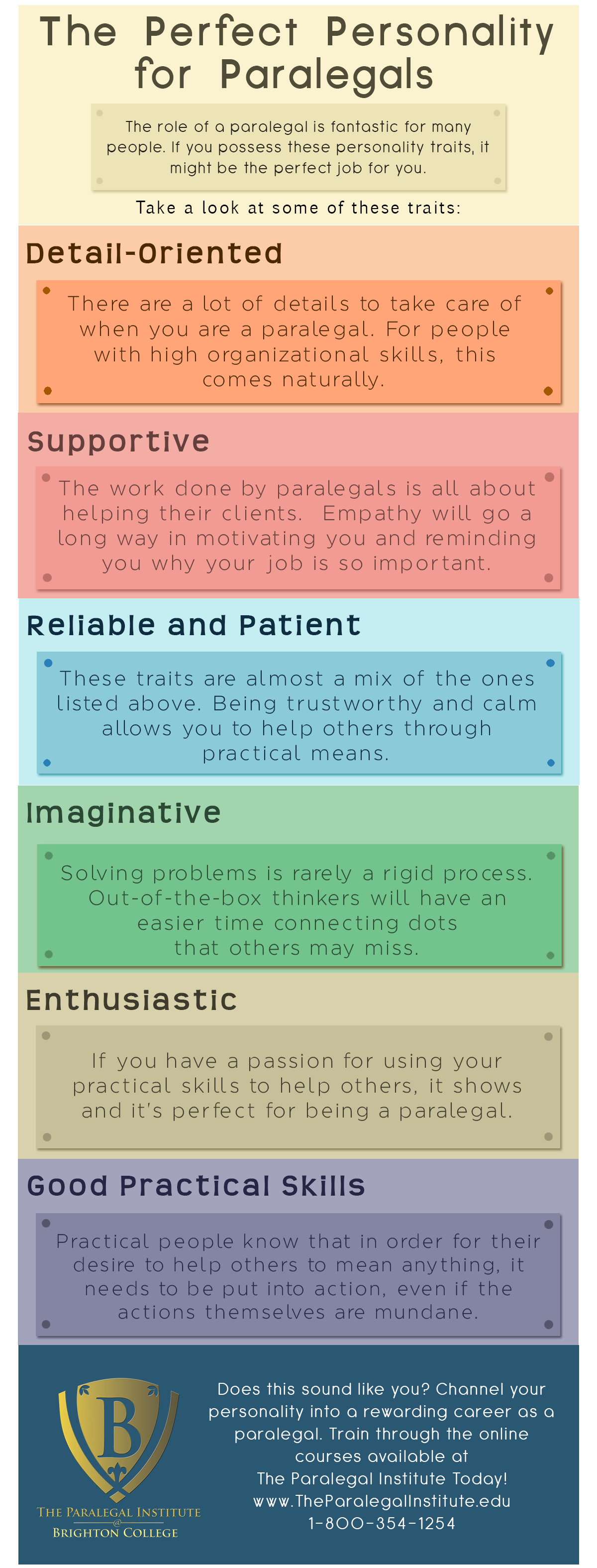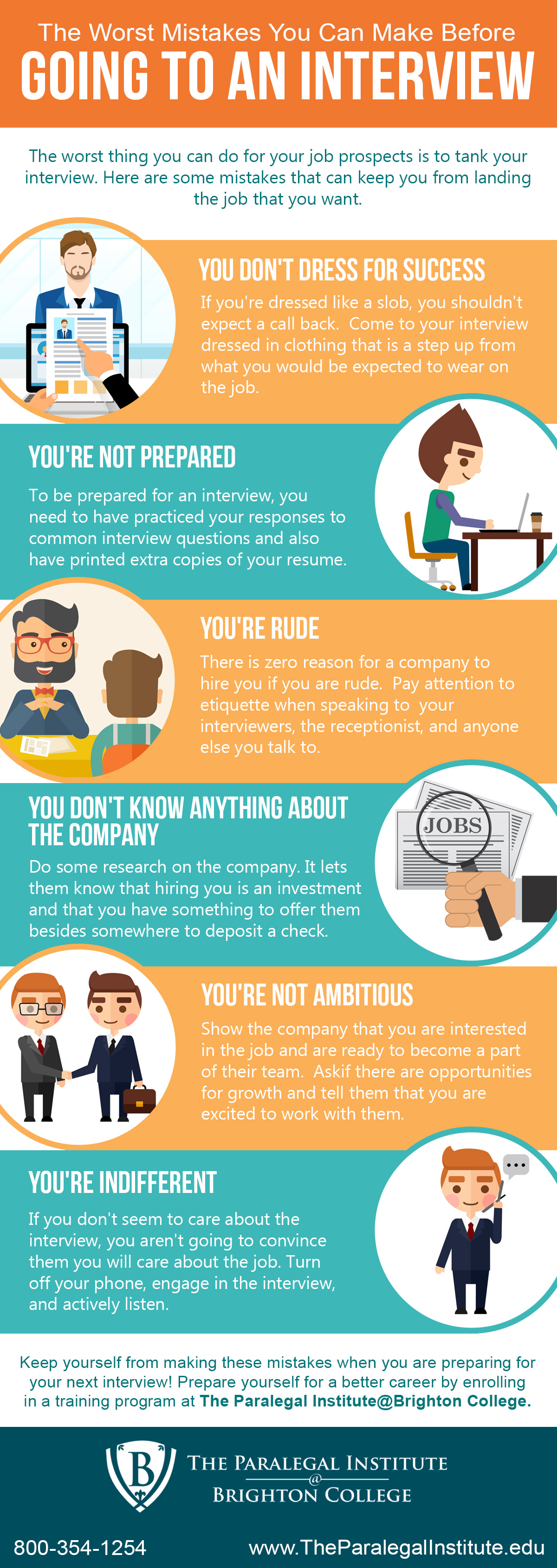

News
Is a Criminal Justice Degree Right For You?

If you are considering your future career path, chances are you have a pretty good idea about what field you are interested in. And if you’ve been drawn to the field of criminal justice, it’s crucial for you to be sure that you are ready to make this commitment.
Since this is a serious choice that will impact your whole life, there are some basic questions you need to ask yourself about your emotional and psychological readiness to take on the demands of coursework, about creating a realistic schedule that will work with online learning, about where your financing will be coming from and if you have the temperament that is suited for the work you want to do.
Beginning at the Beginning
Life is hectic and costly, so it’s important to have certain plans in place before starting to work on your criminal justice certificate or degree. If you are planning to balance either a full or part time job while you are in the program or if you have family responsibilities like caring for children or an elderly parent, have you thought about how you will manage to schedule your time to include all your demands? Have you investigated how to pay for the program? Both of these are critical areas that should be settled (or on the way) before you begin classes so your mind will be free to concentrate on your coursework without these kinds of real-life distractions.
Another important question to answer – especially if you are an older student who is changing careers – is if you are willing to start at the bottom and work your way up. There are very few criminal justice jobs in which you will be able to skip steps or move up the ladder with lightning speed; you have to be willing to learn your field with all the grunt work it takes. This may be a challenge to you if you are used to either middle-management or working autonomously.
Requirements and Limitations
Are you comfortable carrying a firearm? If you aren’t, then your choice of criminal justice jobs will be somewhat limited. For example, paralegals and many crime scene investigators are not usually required to carry a firearm, but if you want to work in one of the law enforcement agencies like the the local police or the FBI, you will need to carry and be willing to use a gun. So make sure the field/fields of criminal justice that seriously interest you fall in line with your feelings about guns.
Age does matter. If you are in your mid-30’s, some agencies rule you out automatically. FBI agents and policemen fall into this category because both require you to be physically fit enough to pass the rigorous training at their academies. There are also stringent medical, hearing and vision tests for police officers, deputies, Highway Patrol and sheriffs, so if you have a disadvantage or disability in these areas, make sure you get the information you need ahead of time.
Temperament and Personality
While there are niches in criminal justice for nearly all types of people (for example, a forensic accountant is going to be very different from a DEA agent), it’s a good idea to evaluate your own personality in regards to your field of interest. It may sound trifling, but think of it this way: If you are a naturally outgoing and gregarious person, and you are interested in doing undercover work, your personality and the requirements of the job will probably be in conflict.
If you are interested in a job in corrections where you will be working directly with offenders, you should a good communicator and psychologically oriented. But if you want to be a crime scene investigator, you should have an inquisitive and analytical mind, and the ability to work alone or on a team.
To be a paralegal or a court reporter, you should always display professionalism in appearance and the ability to do exacting detail-oriented work; you need good organizational skills and to be comfortable following directions and meeting your deadlines. This is very different than the personality best suited to law enforcement jobs such as a state trooper or a police officer which require you to be a good communicator, a vigilant observer and able to remain calm under stressful situations.
There are many practical and personal angles to think about before starting your courses at The Paralegal Institute, but the best piece of advice for anyone considering making the commitment to a program that will lead to a new career is also the simplest: know yourself.
5 Important Blawgs for Criminal Justice Students to Follow
You’ve made the decision to pursue a career in criminal justice, and you’ve taken the first important step towards your goal: you’ve enrolled in a program like the one at Brighton Online College’s Paralegal Institute to earn your first accreditation and learn everything you can about your chosen field. You’ve arranged your finances and you’ve created time to really drill down and study, whether it’s making sure the kids are in bed or asking your boss to let you work a different shift so you can do your coursework when you aren’t tired. Have you got it all covered? Well, yes and no.
There is another aspect of learning about the criminal justice system that can be incredibly helpful to you: blogs about your field. As you know, the field of criminal justice encompasses a wide variety of career choices from law enforcement to Homeland Security to Parole officer; and in all the different fields there is one constant – they are always changing to adjust to the needs of the public and the agencies they serve. Finding a few blawgs (AKA law blogs) that are both interesting and informative about all aspects of your specific career direction can be an invaluable part of your learning experience.
Here are some blawgs you should keep in mind:
The Criminal Justice Degree, College and Career Blog is an excellent reference and source for all different aspects of what to expect and where to look for the program that is right for your needs. It has a partial but growing list of programs in various states, explanations of the different degrees available and blog posts about everything from choosing a school, to the application process, financial advice and requirements for accreditation and certification.
The United States Department of Justice (DOJ) puts out its own blog called Justice Blogs. Highly informative and inclusive, this is a must-read blog that ranges very widely over issues involved in the field. Its comprehensive search feature is your best path to any topic you want to read about, including cybercrime, drug crimes, human trafficking, tribal justice, consumer crimes, intellectual property, environmental crimes and many, many more pertinent topics. Posts here are longer than most and packed with information; and since this blog is updated nearly daily, it’s always up to date.
Are you current in your knowledge of the types of crimes committed and the numbers attached to them? Check out Crimes in America for the latest facts and figures on length of prison terms broken down by ethnicity and race, for news about reward offers, statistics on aggravated assaults and rapes, the efficacy of neighborhood foot patrols, bodycam programs for police departments, crime prevention tips, crime statistics, the country’s most dangerous cities and leading news from different corrections departments. If you want to stay up to date with your facts and figures regarding crime nationwide, this blog is an excellent reference tool.
Written by someone with unusual expertise, former felon and CPA Sam E. Antar, the White Collar Fraud Blog is an inside look at how crimes are planned and committed and has been named one of the top 25 criminal investigative blogs by the Huffington Post. Antar takes on the big companies – calling out Overstock.com for fraudulent accounting practices that led the company to materially overstate earnings and inflate its financial performance claims. This blog tackles tough legal cases including Bitcoin money laundering, insider trading, and congressmen and judges who have committed crimes that range from adultery to drug abuse.
If you are already a student at Brighton Online college – or if you are considering enrolling – the school has its own has its own blog for students and anyone who is looking to learn more about the field of Criminal Justice or Paralegal studies Topics range from single parenting when you are taking online courses to jobs available to you once you have completed your courses and earned your certificate or degree.
The knowledge you acquire as you prepare to enter the field of criminal justice is not just limited to coursework and studies. Blogs that are built around the subject matter can be just as informative and important to your new career path as any other learning format – as long as the blogs have been checked out and vetted. Getting a jump on specific topics and areas of interest makes you a better, more confident student, one who has a real-world grasp of the field as well as a factual classroom education.
Decided to be one of our criminal justice students? Learn more about the criminal justice program that suits your interest and experience ? Fill out our contact form or call our main office 1-800-354-1254 today.
The Truth Behind New Year’s Resolutions
Is there a secret to keeping a resolution? Maybe not, but there are plenty of things that will help you keep on track while understanding why it can be so hard to achieve your goals.
Willpower is Limited
Your willpower is like a muscle, which means it can get exhausted. Strengthen it with small, consistent challenges.
Not Focused on the Journey
You can’t lose 10 pounds by not eating healthy and never working out. Turn the habit- not the result- into your goal instead.
You’re Indecisive
Making a resolution because it seems like a good idea won’t get you anywhere. Only set goals that you specifically want to achieve.
Peer Pressure
If your friends aren’t ambitious enough for their own resolutions, at least make sure they respect yours and don’t encourage cheating.
Remove Obstacles
Get rid of the things in your way. Give someone else all the sweets in your house. Take the batteries out of the remote.
Get Excited
Breaking bad habits and starting new ones is rough. Focus how great it will be when you achieve your goal.
New Year, new you? Only if you really want it! If 2016 is the year you want to train for a better job, The Paralegal Institute at Brighton College is here to help you prepare for a great career in the criminal justice industry. Contact us today!
Embed This Image On Your Site (copy code below):
Criminal Justice Students: The Pitfalls of Social Media
The 2012 Summer Olympics opened in London on July 27th with the traditional processional and the lighting of the Olympic torch. Everything seemed routine, but it was anything but, because five days earlier an athlete had been sent packing for an offensive, racist tweet: Greek triple-jump champion Voula Papachristo angered the Olympic committee and hundreds of thousands of others by tweeting disparaging comments about African Olympic contenders, and the committee responded by sending her back to Greece, disgracing both the athlete and her home country.
The lesson is clear: be careful what you put out there on social media because a prospective employer can find it and decide you aren’t a viable candidate for a position. This kind of character assessment can occur even before you interview since savvy employers make use of services like Jobvite which provide applicant tracking for the social web.
According to the 2014 Jobvite Social Recruiting Survey, 93% of recruiters make use of social media to find and vet future employees. So any posting on Facebook, Twitter, etc. can wind up with you losing out on a job because of something you wrote one, two or five years ago. Don’t let your dedication to working in the criminal justice system get derailed by posts that reflect negatively on you as one of the criminal justice students
There are certain kinds of posts that are obviously going to wave red flags at recruiters and employers. Have you posted nude pictures of yourself or pictures of you and your friends partying just a little too hard in Cabo or Daytona Beach? Have you gone off on people or engaged in online spats that reflect badly on your character?
Here are a few of the real-life responses by professionals to what they have seen on applicants’ social media accounts:
“The worst accounts I came across were students seeking an internship, and those included tons of profanity and in one case a few way too revealing (borderline nude) pics. I’m all for self-confidence, but when I’m looking for someone to be a team player, I don’t want to get into a situation with big egos or improper dress.”– Amanda Forbes Mestdagh, APR
“One time, I saw a candidate who I was really interested in bringing in for an interview, and after checking his social media accounts, which were filled with his weekend activities (some being illegal), I knew we couldn’t hire him if we wanted to, so I never called for an interview.” – Kindra Svendsen, digital marketing/PR specialist, Speak Creative
Another common online social media mistake is to voice negative opinions about current or prospective employers; this is a case of “if you have nothing positive to say, don’t say anything at all.” And be careful that your different social media accounts agree with each other. For instance, if your Linkedin account touts your work ethic but your Facebook account reflects you as a party animal, you may be in for trouble.
Free speech is a right, but your political opinions have the potential to offend a recruiter and cause you to lose out on jobs that might be perfect for you. Pay attention to universal complaints about poor grammar and spelling or a prospective employer is liable to think that you are either too careless or simply not literate enough to be able to handle material without making noticeable errors. And don’t use profanity; it may turn out that your workplace is casual and accepts some profanity, but it’s a bad idea for a first impression.
We know that no information put online ever truly vanishes (deleted tweets can be restored, Instagram photos remain intact in cyberspace and embarrassing pictures you’ve been tagged in by your friends are there forever), but what can be done to rectify the situation? Don’t lose hope – it is possible to clean up your online image, but you need to be dedicated to the task.
First, Google yourself, so that you can cover all bases. You can untag yourself in photos on Facebook, and you can also request the website administrator to remove a post. Next, use your privacy settings. Clean up your tweets and posts and remove all “incriminating” photos. Make sure to add posts, tweets and content that reflect your interest in the field you are applying to get into. And again – importantly – make sure that your resume and your Linkedin account are in sync about your background and experience.
If you need more help, there is a Facebook app called Simplewash that will clean up your Facebook presence for you.
Interested in the field of Criminal Justice? Visit our wide ranges of Criminal Justice Program today. You can also reach us at 1-800-354-1254 or admissions@theparalegalinstitute.edu
The Perfect Personality for Paralegals
The Perfect Personality for Paralegals
The role of a paralegal is fantastic for many people. If you possess these personality traits, it might be the perfect job for you.
Take a look at some of these traits:
Detail-Oriented
There are a lot of details to take care of when you are a paralegal. For people with high organizational skills, this comes naturally.
Supportive
The work done by paralegals is all about helping their clients. Empathy will go a long way in motivating you and reminding you why your job is so important.
Reliable and Patient
These traits are almost a mix of the ones listed above. Being trustworthy and calm allows you to help others through practical means.
Imaginative
Solving problems is rarely a rigid process. Out-of-the-box thinkers will have an easier time connecting dots that others may miss.
Enthusiastic
If you have a passion for using your practical skills to help others, it shows and it’s perfect for being a paralegal.
Good Practical Skills
Practical people know that in order for their desire to help others to mean anything, it needs to be put into action, even if the actions themselves are mundane.
Does this sound like you? Channel your personality into a rewarding career as a paralegal. Train through the online courses available at The Paralegal Institute today!
Entry Level Criminal Justice Jobs

Are you interested in the field of criminal justice and thinking seriously about going into a program to meet entry-level requirements? Then you will be happy to learn that a wide variety of positions will be available to you, perhaps many of which you aren’t even aware of. And while it might be a little more difficult to land that crime scene analyst position (thank you, CSI!) it can be done.
Careers in criminal justice can be found in the private sector or in the different tiers of government agencies. According to the Bureau of Labor Statistics, in 2013 there were approximately three million U.S. residents employed in criminal justice jobs ranging from homeland security to corrections, law enforcement and law firms.
There are many careers in criminal justice that require a bachelor’s or a master’s degree, but there are also many entry level jobs that only require an associate’s degree or a certificate to start. And with the explosion of online schools that offer courses towards those degrees, you can start your career with a program specializing in one area and continue to work or raise a family while you go on to earn higher degrees if that is what you decide to do.
Here are some of the entry level criminal justice jobs that are available to people without a bachelor’s degree or above.
Court
• Court Clerk
• Court Reporter
• Bailiff
In these positions you will work within the courts, both criminal and civil. You will be in daily contact with lawyers, judges and police officers, and be responsible to all those parties. This is an integral part of the criminal justice field that operates at the courthouse, and will give you an inside look at our court system and how it works.
Legal
• Paralegal
While it is still considered to fall within the legal category, being a paralegal is quite different from those discussed above. Paralegals who start with either a diploma or an associate’s degree are in very high demand; and the job opportunities exist for them in both small and large law offices in all areas of the law. These are great jobs on their own or for anyone considering law school, since it gives you the opportunity to gauge the field before committing to the time and expense of law school.
Corrections
• Substance Abuse and Behavioral Disorder Counselor
• Corrections Officer
Corrections officers work inside the prison system dealing with both prisoners and staff, while substance abuse counselors work at substance abuse facilities or hospitals. They are tasked with client evaluation including background history and severity of addiction.
Homeland Security
• Customs and Border Protection Officer
• TSA (Transportation Security Officer)
Unlike Border Patrol which requires a minimum of a B.A. to start, Customs and Border Patrol agents work the 300+ ports of entry to the U.S. screening returning citizens, visitors and cargo to enforce customs, immigration and agricultural laws and to help prevent human trafficking and contraband including drugs and weapons from being allowed into the country.
Law Enforcement
• Criminal Investigator
• Deputy Sherriff
• Fire Investigator
• Fish and Game Warden
• Transit and Railroad Officer
• Police Officer
• State Trooper
Law Enforcement includes a wide variety of position from Conservation Officers (Fish and Game) to transit and railway enforcement, fire investigator, state trooper and more.
Private Sector
• Loss Investigation Specialist
• Private Investigator
• Security Guard
• Fraud Investigator
• Private Security
Within this category, Loss Investigation Specialist is a particularly active field. With an estimation of $32 billion in merchandise stolen annually just from malls, much of the theft done by professional thieves, loss specialists are in high demand. Likewise, private security for individuals and firms are much needed as are security guards and fraud investigators.
For those individuals who like the idea of working independently of institutions, doing private security for people who are worried about becoming targets may be the right path for you. And fraud investigators, who can work on either civil or criminal investigations, can put sharp investigative skills to work while investigating credit card or insurance fraud. This job involves many skills including interviewing the victims of fraudulent activity, researching transactions and records, conducting surveillance and executing search warrants.
It’s important to remember that many of these jobs that require certificates or associate degrees to begin will require more advanced degrees in order to move up the ladder. But making a start by enrolling in an online college program like the Paralegal and Criminal Justice program offered by Brighton College is the perfect way to begin a career that is rewarding both lucratively and in the knowledge that you are doing something to help society.
Can You Work in the Criminal Justice Industry if You Have a Record?

If you are thinking about going into the criminal justice industry but you have a criminal record, you must wonder if any kind of job in that field is open to you. There is no simple yes or no answer because there a many, many variables that apply. They may depend on where you live, the severity of the crime or the type of crime. One thing is sure, and that is you should never try to hide the fact that you have had an arrest or a conviction.Almost all employers in all states now utilize background checks when considering applications, but again, variables apply: the type of work you are applying for makes a big difference. As you may already know, the criminal justice system encompasses an extremely wide variety of jobs, and while some of these – such as becoming a CIA or FBI agent – will never be available to someone with a record, there are actually a lot of opportunities for people who have tangled with the legal system before.
Many people thinking about criminal justice careers are young and hoping to begin a lifelong career. If this is the case, consider when and if your record can be sealed. Getting your record sealed may require that you actually go to a courthouse in the same jurisdiction where you were convicted and deliver a special request. If you are successful, then you can legitimately answer “no” when filling out a job application that asks if you have a criminal record. But not all offenses committed under the age of eighteen are necessarily available to be sealed.
While a misdemeanor is obviously less serious than a felony, misdemeanors do stay on a criminal record for life. However, not all misdemeanors automatically show up on a background check. For instance, misdemeanors such as disorderly conduct, vandalism or petty theft, which are prosecuted at the county level, may not appear if your prospective employer runs a state background check; that being said, it is highly advisable that you be completely honest with your prospective employer and tell them about it.
Felonies present a different case. For instance, a Class A crime such as murder, arson assault or a sex crime can never be sealed – although it is unlikely that anyone with that background will be out of prison or considering a criminal justice career. If you committed what is considered a Class B crime including burglary, drug sales, or possession of stolen property, there is a mandatory ten-year period before you can request your record to be sealed. Class C crimes such as vehicle theft or possession of a firearm requires that you wait for five years and not have been convicted in the interim of any other crime. And if a youthful indiscretion resulted in the order to perform public service or take classes, your record is automatically sealed when you reach the age of eighteen.
Avvo is an online legal service that mostly gives advice to those wishing to become lawyers, but it can be an extremely helpful resource for answers to specific questions about other areas of criminal justice employment.
One wrinkle in the area of employability is that many criminal justice jobs that may be available to someone with a record may also include specific requirements that make it impossible to accept such a job. For instance, felonies that prevent an individual from purchasing, carrying or owning a firearm will automatically limit the kinds of positions you can accept. So while you may be able to get a job in private security with a record, if your employer requires you to carry a firearm for protection (yours or theirs) you will simply not be able to fulfill the requirements of the position.
Another confusing area in this process is that so many states take different approaches to this problem. Arizona, Colorado, Connecticut, Florida, Kentucky, Louisiana, Minnesota, New Mexico, New York and Washington have recently banned employers completely from asking applicants about criminal backgrounds; obviously, this makes it considerably easier for someone with a record who does want to go into criminal justice to get that job.
This is a complicated topic, and there are many areas – such as the difference between sealing a record and expunging a record – that deserve separate articles. What is crucial if you are considering a criminal justice job but have a record is that you thoroughly research your own state’s laws and requirements and understand the impact your history will have your on chance to get and succeed in the job of your choice.
Interested in the field of Criminal Justice? Visit our wide ranges of Criminal Justice Program today. You can also reach us at 1-800-354-1254 or admissions@theparalegalinstitute.edu
Paralegals and High Profile Cases
Deciding to become a paralegal opens up a wealth of choices, one of which is whether you want to be a professional career paralegal or you want to see if the leg al world is suited to you before you sign on for the time and expense of law school. Either way, paralegal work is demanding, challenging and rewarding.
al world is suited to you before you sign on for the time and expense of law school. Either way, paralegal work is demanding, challenging and rewarding.
Just like lawyers, paralegals can choose a specific area of the law that interests them. You may be the kind of person who is passionate about the environment or someone who understands and empathizes with difficult family law and custody issues. You may choose to go into the booming field of intellectual property or decide that you’d like to become part of a large corporate law practice. Or you may decide that the world of high profile criminal law is what really interests you, in which case you probably want to go to work for a defense attorney.
What Does a Paralegal Do?
The paralegal is responsible for researching, preparing discovery, interviewing, and supporting the lawyer(s) on the case with efficiency and knowledge. In a high profile case, you will help the attorney with pretrial work including interviewing clients about their personal history, their career, education, family and any previous legal problems. You will also help with the investigation of the case facts and the people involved peripherally.Other responsibilities can include searching records, getting hold of proper documentation and drafting new documentation, and sometimes even strategizing with the lawyer about the approach to the case. The paralegal may also put their own abilities to assess people to good use and assist in jury selection. In any and all actions, the paralegal is expected to reflect the ethics of their firm.
Role in High-Profile Cases
Probably the most famous case involving a paralegal is, surprisingly, not criminal. The Erin Brockovitch case is famous partially because it was made into a popular film, but even more because Brockovich, while actually still only a file clerk in a law firm, became an activist who helped build a successful case against Pacific Gas and Electric for having contaminated local drinking water and causing serious illnesses to occur.
But it’s more likely that a high profile case will be a criminal case, especially one which – like the Jodi Arias or O.J. Simpson trials – fascinates the media and the public. I’m sure you’ve heard the term “three-ring circus” applied to some high profile cases. If that’s an accurate description of the high profile trial atmosphere, then the paralegal is definitely one of the ringmasters. What Skills do Paralegals Need?
Having an inquisitive mind is a great tool for success as a paralegal; the paralegal who becomes curious about why some small fact in one document is missing completely in another, or why there are contradictory explanations about the same incident from two different sources can keep on digging and may even turn up new evidence. With some courtroom experience, he or she should recognize and identify strategies being used by opposing counsel and perhaps even gauge the direction of the judge.
Paralegals need very good people skills, and this is especially true in high profile cases where it’s expected that there will be a lot of temperament and drama on display. The good paralegal will be able to deal skillfully with everyone – including clients – who is a part of the legal team; that means quickly recognizing certain personalities and knowing how to handle them. This can be very stressful to handle, so it pays to know what kind of person you are and how you function under pressure before deciding to work for a lawyer or firm that handles a lot of high profile cases.
According to Online Paralegal Programs, which provides an overview of the profession and its requirements, paralegals earn, on average, about $51,990 a year, with some jobs paying more (the top ten percent of paralegals make around $75,000 a year)and some less. The field is open, with the number of paralegals expected to increase up to 17% by 2022.
In order to get to those high profile cases, you will need a degree and experience. The Paralegal College at Brighton College offers two paralegal degrees – a Paralegal Diploma, which is a one-year course, and a Paralegal Associates Degree, which is a two-year course. They also offer continuing education classes, which is a great advantage in a field that deals consistently with changes and new laws.
The Worst Mistakes You Can Make Before Going To An Interview
What’s going to get you a call-back after the interview? Nothing, if you can’t avoid these mistakes. Step up your dedication to your career success by following these tips on how to not suck at a job interview. If you want a great job, you have to prove to interviewers that you’d make a great employee. Make them want to invest in you and they will. However, if you come off as incapable, rude, or unprepared, you will lose their interest.
What’s the biggest mistake you’ve made at an interview? Have you ever done something silly, like trip over a chair? Things like that may not even matter in the long run- it’s a human mistake. However, if your mistake is an indicator that you don’t approach the interview (and, by proxy, the job) with thought and care, it’s far worse than looking silly. Look at every interview as a chance to earn something. In this case, the reward is a job and you earn it by being prepared, capable, and qualified. If you’re treating job interviews as gambles- as something where your effort won’t affect the outcome, then you’re already starting at a great disadvantage.
Don’t do that to yourself. Use the tips in this infographic to prepare you with a strong foundation for interview success. Better yet, start off by using the career training available through The Paralegal Institute at Brighton College to prepare yourself with impressive career knowledge and then pair that with the tips listed here to grab an even better career. Success isn’t something that’s just going to fall in your lap. It’s something that you have to prepare yourself for. Don’t let those opportunities slip through your fingers. Contact us today to see how you can set yourself up for success in the legal field. Do your future self a favor.
The Different Roles of Legal Secretaries and Paralegals
 No matter how talented they are and how little sleep they get, lawyers cannot run their own firms and still do justice to their clients’ needs without skilled help. A lot of that help comes directly from legal secretaries and paralegals, and although many people get the two jobs confused or believe they are nearly identical, there are important differences between them. Salary potential and education requirements are just two of the areas in which paralegals and legal secretaries are considerably different, and even when job requirements seem almost the same, the paralegal will become far more involved in the actual legal work of a case, while the legal secretary takes care of the more administrative responsibilities.
No matter how talented they are and how little sleep they get, lawyers cannot run their own firms and still do justice to their clients’ needs without skilled help. A lot of that help comes directly from legal secretaries and paralegals, and although many people get the two jobs confused or believe they are nearly identical, there are important differences between them. Salary potential and education requirements are just two of the areas in which paralegals and legal secretaries are considerably different, and even when job requirements seem almost the same, the paralegal will become far more involved in the actual legal work of a case, while the legal secretary takes care of the more administrative responsibilities.
Education
There are no mandatory educational requirements to become a legal secretary. Most have completed high school or earned a GED, and many go on to earn legal secretary certificates or associate degrees. A top legal secretary who wants to remain at the top will often take individual courses at colleges to learn more about the law and legal practices, but this is done to increase their skills and bolster potential advancement in the field. Some of these courses might teach how to produce legal documents, memos and complaints, maintain docket systems and schedule witnesses.
Most paralegals, on the other hand, have completed a four-year undergraduate college and hold a degree before enrolling in a paralegal school and attaining a second degree in this specific field. This classification is further divided by the fact that new paralegals may have earned their paralegal certifications or degrees by completing a one year course, two year course, or in some instances, a complete four year program.
Salary
For the most part, paralegals earn quite a bit more money than legal secretaries do, and this is undoubtedly due to the education levels required for the two different jobs. Most legal secretaries earn in the $40,000 range annually, and there aren’t many options for advancement in the workplace. Paralegals enter the work force with a significant body of legal knowledge already under their belts, and they are compensated for it. Most paralegals now make between $52,000 and $60,000 a year, and the salary increases impressively for paralegals who work at large law firms and are in management. While there aren’t a lot of advancements a paralegal can make in title, he or she may well be one of the people who will use this job as a way to decide whether or not they want to go on to law school.
Work on Cases
There is a great deal of preparation that needs to go on before a case ever reaches the courtroom, and both paralegals and legal secretaries play significant roles in this pre-trial phase of the case. Legal secretaries are expected to stay on top of managing the  office while organizing the files in the case and the documents the lawyer needs for review. The legal secretary will also be responsible for creating and maintaining office and court schedules for both attorneys and paralegals.
office while organizing the files in the case and the documents the lawyer needs for review. The legal secretary will also be responsible for creating and maintaining office and court schedules for both attorneys and paralegals.
Paralegals are expected to be more deeply involved in case preparation than a secretary. Paralegals are trained to do legal research and must be extremely accurate and detailed in this work; they are often also involved in interviewing witnesses in the case, which requires certain skills in handling people may already be experiencing some distress at being part of a case or lawsuit. Paralegals with proven track records may also help prepare statements and arguments that will be presented in court – each task requiring knowledge and concentration. So while both are members of the support team for the attorney, the work the paralegal performs is usually more involved in the legal aspects of the case while the legal secretary creates order in a sometimes chaotic atmosphere and then maintains that order even under extreme stress.
Working with Clients
In this aspect, the role of the legal secretary is usually confined to administrative work. They will be responsible for scheduling and rescheduling meetings, taking messages from clients and keeping track of the paperwork that clients are required to fill out. While paralegals may also function as administrators, legal secretaries rarely do paralegal work. Paralegals are involved in cases on a more one-to-one level, since they often conduct client interviews. This is a delicate position that requires tact as well as skill, since while paralegals can draft documents and help the client understand exactly what each document means in the context of the case, they are never supposed to provide legal advice to clients.
If you’re interested in pursuing a career as a paralegal, we offer great programs for both diplomas and Associate’s Degrees in Paralegal Studies. Find out which one is right for you and get started with us today!




